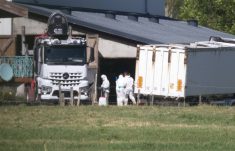Paris | Reuters — French foie gras output is set to rise for the first time in five years in 2023 as France starts vaccinating ducks against bird flu that has destroyed flocks in recent years, but trade bans that followed will weigh on exports, producers said on Thursday.
France has been among the countries worst affected by an unprecedented global spread of highly pathogenic avian influenza that has disrupted supply of poultry and eggs and sent prices rocketing in many parts of the world in the past years.
Read Also

JBS profit falls amid still-challenging US market environment
JBS, the world’s largest meat company, reported a net profit fall in the third quarter in spite of a rise in global net sales amid a still-challenging beef market environment in the U.S., according to an earnings statement on Thursday.
To fight the spread of the disease it started vaccinating 64 million ducks early this month, making it the first poultry exporter to do so and raising hope among foie gras producers that it would put an end to the crisis.
Producer group Cifog forecast foie gras output will rise 20 per cent in 2023 to 9,855 metric tonnes after a drop of 35 per cent in 2022, but still 26 per cent below the average of the five previous years and half the volume produced 10 years earlier.
Higher production costs, including part of vaccination, will lead to another rise in foie gras prices, pegged at five per cent this year, it said.
On the export front, France’s bird flu vaccination campaign prompted several countries to impose a ban on French poultry imports, including Japan, France’s main foie gras export market outside Europe with a share of 10 per cent in value.
Canada and the U.S. also imposed bans, Cifog added.
Although more and more governments have been looking at vaccination as a way to contain the virus, most of the world’s biggest poultry producers have resisted vaccination due to concerns it could mask the spread of bird flu and prompt trade bans.
— Sybille de La Hamaide is a Reuters commodities correspondent in Paris.











